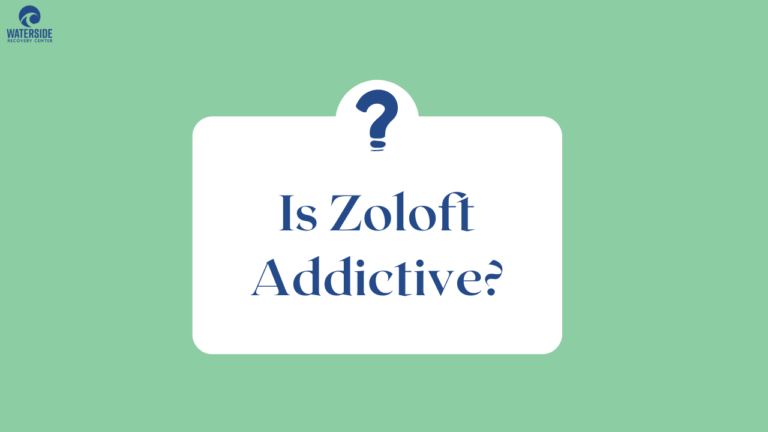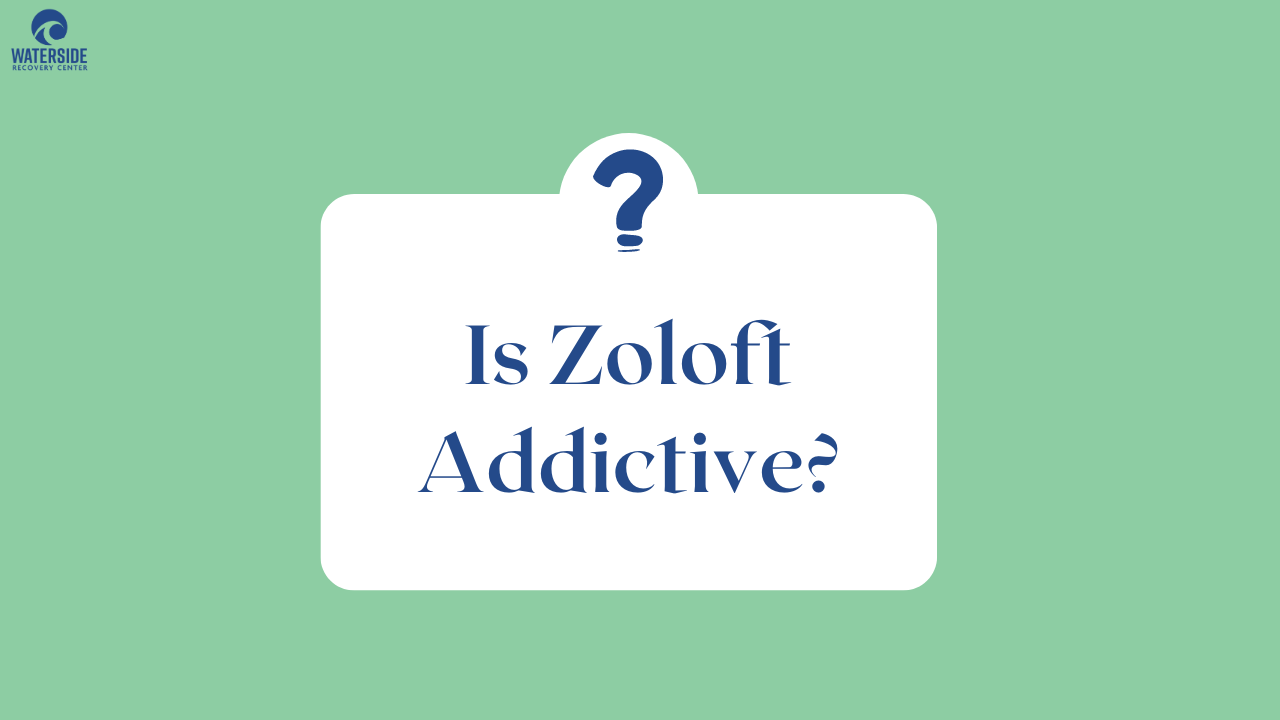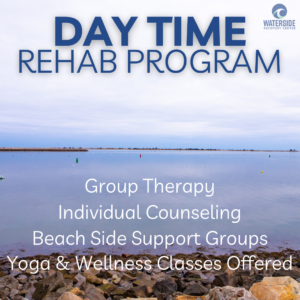
Is Zoloft Addictive? A Clear Answer with Expert Knowledge
Zoloft is a commonly prescribed antidepressant medication that belongs to the selective serotonin reuptake inhibitor (SSRI) class of drugs. It is used to treat various mental health conditions, including depression, anxiety, obsessive-compulsive disorder (OCD), and post-traumatic stress disorder (PTSD). However, some people may wonder if Zoloft is addictive.
According to the drug’s prescribing information, Zoloft is not considered addictive. It does not produce the same type of high or euphoria that is associated with drugs of abuse, such as opioids or stimulants. Additionally, Zoloft does not cause physical dependence, which means that a person will not experience withdrawal symptoms if they suddenly stop taking the medication. However, it is important to note that some people may experience discontinuation symptoms if they stop taking Zoloft abruptly, which can include dizziness, nausea, headache, and irritability.
Understanding Zoloft
What Is Zoloft?
Zoloft is a prescription medication that belongs to the class of drugs known as selective serotonin reuptake inhibitors (SSRIs). It is used to treat various mental health conditions, including depression, anxiety, obsessive-compulsive disorder (OCD), and post-traumatic stress disorder (PTSD).
How Does Zoloft Work?
Zoloft works by increasing the levels of serotonin, a neurotransmitter that regulates mood, in the brain. It does this by inhibiting the reuptake of serotonin, which means that more serotonin remains in the brain to bind to receptors and exert its effects. This leads to an improvement in mood and a reduction in symptoms of depression, anxiety, and other mental health conditions.
Therapeutic Uses of Zoloft
Zoloft is primarily used to treat depression and anxiety disorders. It can also be used to treat OCD, PTSD, and premenstrual dysphoric disorder (PMDD). In addition, it may be prescribed for other off-label uses, such as social anxiety disorder, panic disorder, and eating disorders.
Zoloft is not a cure for mental health conditions, but it can help manage symptoms and improve quality of life. It is important to take Zoloft as prescribed by a healthcare provider and to not abruptly stop taking it without medical supervision, as this can lead to withdrawal symptoms and other complications.
Dependency and Addiction
Defining Addiction
Addiction is a complex condition that involves compulsive drug-seeking behavior, even in the face of negative consequences. It is characterized by a strong desire to use a substance, a loss of control over its use, and continued use despite harm. Addiction is often accompanied by physical dependence, which is a state of adaptation that occurs when the body becomes accustomed to the presence of a drug and experiences withdrawal symptoms when the drug is discontinued.
Zoloft Dependence vs. Addiction
Zoloft is a selective serotonin reuptake inhibitor (SSRI) that is commonly used to treat depression, anxiety, and other mental health conditions. Like other SSRIs, Zoloft can cause physical dependence, which means that the body becomes accustomed to the drug and experiences withdrawal symptoms when it is discontinued. However, physical dependence is not the same as addiction.
Unlike drug addiction, physical dependence on Zoloft does not involve compulsive drug-seeking behavior or a loss of control over its use. Instead, physical dependence is a normal and expected consequence of long-term use of SSRIs like Zoloft. When discontinuing Zoloft, it is important to taper the dose gradually to minimize withdrawal symptoms.
Risk Factors for Zoloft Dependency
There are several risk factors that can increase the likelihood of developing physical dependence on Zoloft. These include:
- Taking Zoloft for an extended period of time
- Taking high doses of Zoloft
- Abruptly stopping Zoloft
- Taking Zoloft with other drugs that affect serotonin levels
It is important to work closely with a healthcare provider when taking Zoloft to minimize the risk of developing physical dependence and to ensure safe and effective treatment.
Addressing Zoloft Use
Safe Use of Zoloft
Zoloft is a prescription medication that should only be taken under the guidance of a healthcare professional. It is important to follow the dosage and usage instructions provided by the doctor or pharmacist. Taking more than the prescribed amount or using the medication for a longer period than recommended can increase the risk of addiction and other adverse effects.
Individuals who have a history of substance abuse or addiction should inform their healthcare provider before taking Zoloft. In some cases, alternative treatments may be recommended to avoid the risk of addiction.
Managing and Preventing Addiction
Although Zoloft is not considered to be highly addictive, it is possible to develop a dependency on the medication. Signs of addiction may include:
- Cravings for the medication
- Difficulty stopping or reducing use
- Withdrawal symptoms when attempting to stop use
- Continued use despite negative consequences
To manage and prevent addiction, individuals should only take Zoloft as prescribed by their healthcare provider. It is important to communicate any concerns about addiction or dependency to the healthcare provider. They may recommend a gradual reduction in dosage or alternative treatments to avoid withdrawal symptoms.
Treatment for Zoloft Dependency
If an individual develops a dependency on Zoloft, treatment may be necessary to overcome addiction. Treatment options may include:
- Detoxification: A medically supervised process to safely remove the medication from the body and manage withdrawal symptoms.
- Behavioral therapy: Therapy to address the underlying causes of addiction and develop coping strategies to prevent relapse.
- Support groups: Groups that provide peer support and encouragement to individuals in recovery.
It is important to seek professional help if addiction is suspected. With the right addiction treatment and support, individuals can overcome addiction and achieve long-term recovery.
At Waterside Recovery Centers we pride ourselves on providing the top addiction treatment in Massachusetts. With a range of evidence-based, client-focused and individualized treatment offerings, we are able to provide the ideal support for those seeking recovery from substance addiction. Please feel free to reach out to our help line at anytime.
(866)671-8620





